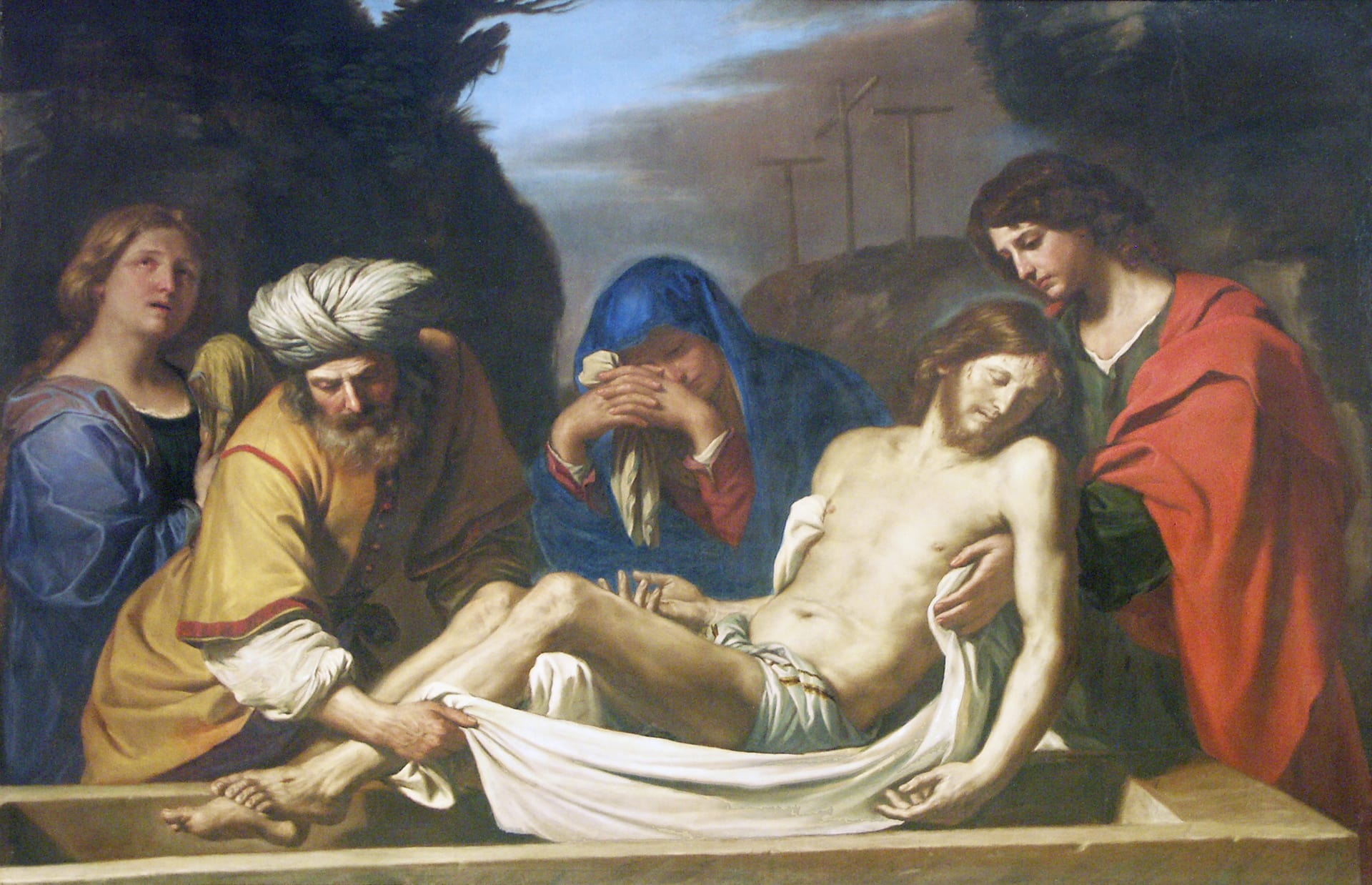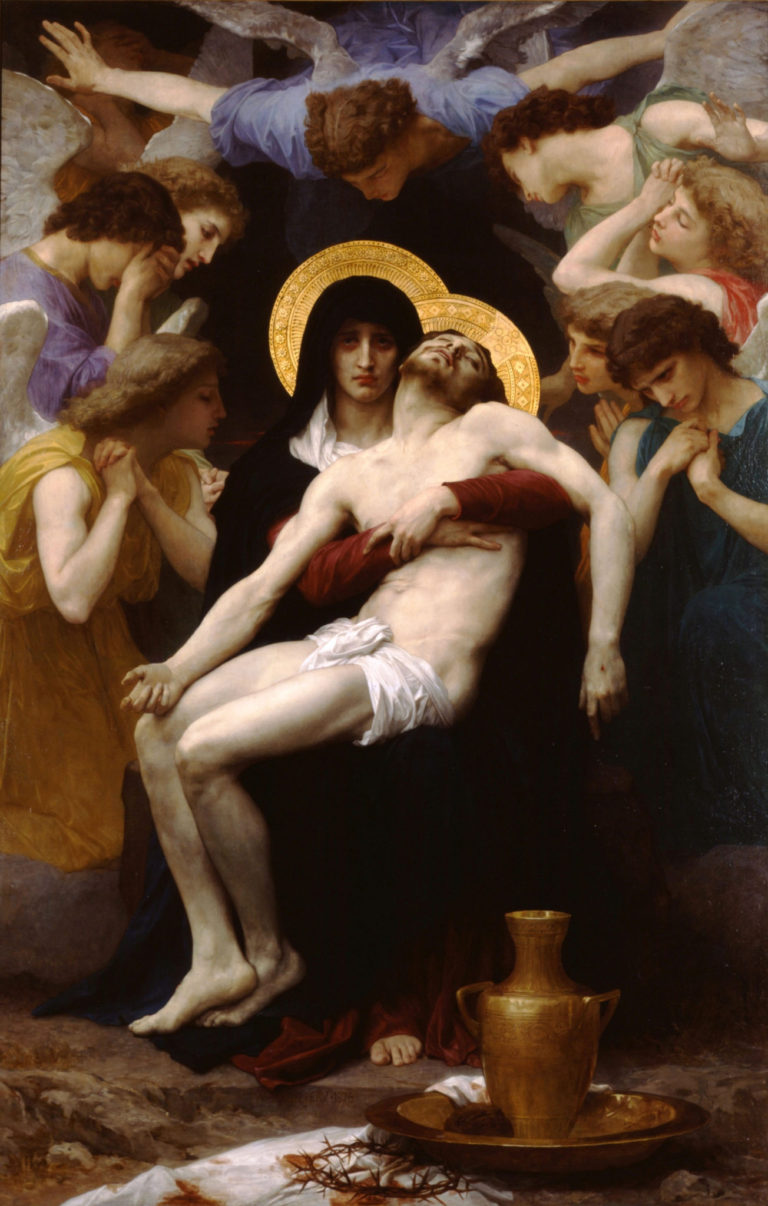Your Faith Has Saved You
In the Gospel of Mark we encounter the story of the woman with a hemorrhage who follows behind Jesus in a crowd. She touches His cloak and is immediately healed. (Mk 5:21-43) It is one of Jesus’s many miracles — in the Bible and throughout history. He continues to work miracles in our lives today, but so many times I hear people complain “Well, I prayed for healing and He didn’t listen to me.” These are among the most bitter people, disappointed and angry with God. So why does God heal some but not others? I certainly cannot presume to know the mind of God, but I have pondered this question, and as I do, I turn to scripture as the key to unlock some answers.
“Unless you change and become like little children, you will never enter the Kingdom of Heaven.” (Mt 18:3)
There’s that word we all run away from: “change.” None of us really want to change ourselves. We would be much happier if God would change and run things our way, so that’s the first stumbling block. He says to become like “little children.” Little children are humble and trusting. They don’t think they have all the answers. Instead, they turn to their parents. They aren’t afraid to say “I don’t know” because they haven’t had enough time on earth to become prideful — and they trust completely.
Would it be so terrible to become like little children? Wouldn’t it be a welcome respite to not feel the need to have all the answers? To not have to be in control? To not feel responsible for everything? Wouldn’t it be a relief to put down those heavy burdens He never asked us to carry in the first place? True freedom actually comes when we have the courage to change – to become humble, to become trusting, to let God be in control.
This was the disposition of the woman with the hemorrhage. She didn’t demand Jesus’s attention. She didn’t try to bend Him to her will. She didn’t even try to delay Him. She only wanted to touch the back of His cloak. She was humble. She had complete faith in Him, trusting that she would be healed. He says to her, “Your faith has saved you.” He didn’t just heal her physical body; he saved her soul for eternity.
The woman did something else we usually overlook. She listened when He spoke to her. Do we do the same? Prayer is a dialogue with God which means both people talk and both people listen. Do we just talk at God to give Him our list of wants and consider our “prayer” done? Do we sit with a closed heart, hoping not to hear the voice of God because we aren’t sure we are going to like what He has to say?
What about forgiveness? Have we forgiven our brothers and sisters from our hearts before approaching God? If my child comes to me with dirty hands and asks for a cookie, I tell him to wash his hands first. How can we then go to God with dirty hearts full of unforgiveness and expect that He won’t ask the same of us? Do we stand there with our grudges firmly held, arms crossed, refusing to open them to lovingly exchange an embrace with God? If we won’t allow Him into our hearts, how can we allow Him into our bodies?
“…God clothes the wild flowers growing in the field which are there today and thrown into the furnace tomorrow, will He not much more look after you, you who have so little faith?” (Mt 6:30)
God always delights in giving His children good gifts and we need to prepare ourselves to receive them with faith. Sometimes we do not receive physical healing, but that does not mean He has abandoned us. It means that He is trying to draw us closer to Him. Often we neglect Him when things are going well and only turn to Him when they are not. Unfortunately, this neglect of prayer tends to lead us on paths far away from God and above all, He wants to lead us to Him because He desires our eternal salvation.
A priest told me that he often visits the sick in the hospital. One day he went to visit someone who had requested his presence, but that person had checked out and a new patient was in the room. He thought since he was there already, he should say hello. The woman was not baptized and had never practiced any faith but she welcomed his visit. At the end of their conversation she requested Baptism. After meeting with the family who saw how much this meant to her, they arranged a time at the hospital for the Sacraments of Initiation — Baptism, Eucharist, and Confirmation. She died shortly after. At the funeral the only Catholics there were the priest and the deceased, so he preached the beauty of the Catholic faith to those in attendance. Within a year, half the people who had come to the funeral were on their way to becoming Catholic. Sometimes suffering can lead to your family’s salvation as well as your own.
Sometimes He does not heal our physical wounds right away because the spiritual wounds are so much worse and need to be attended to first. The Inner Healing Prayer (see below) said daily can assist us in opening our hearts. Other times suffering is a blessing in disguise that we can offer up in atonement for our sins, which brings us the grace of a shorter Purgatory. In some cases, suffering is a gift of a white or red martyrdom because He wishes to give us even greater gifts in Heaven. Whether or not we receive a physical healing, if we open ourselves to His will and trust in Him then our spiritual healing can begin. Then and only then can we receive His greatest gift — the gift of His peace which is beyond all understanding. (Phil 4:7)
Prayer For Inner Healing
Dear Lord Jesus, please come and heal my wounded and troubled heart. I beg you to heal the torments that are causing anxiety in my life. I beg you, in a particular way, to heal the underlying source of my sinfulness. I beg you to come into my life and heal the psychological harms that struck me in my childhood and from the injuries they have caused throughout my life.
Lord Jesus, you know my burdens. I lay them on your Good Shepherd’s Heart. I beseech you — by the merits of the great open wound in your heart — to heal the small wounds that are in mine. Heal my memories, so that nothing that has happened to me will cause me to remain in pain and anguish, filled with anxiety.
Heal, O Lord, all those wounds that have been the cause of evil that is rooted in my life. I want to forgive all those who have offended me. Look to those inner sores that make me unable to forgive. You who came to forgive the afflicted of heart, please, heal my wounded and troubled heart.
Heal, O Lord Jesus, all those intimate wounds that are the root cause of my physical illness. I offer you my heart. Accept it, Lord, purify it and give me the sentiments of your Divine Heart.
Heal me, O Lord, from the pain caused by the death of my loved ones. Grant me to regain peace and joy in the knowledge that you are the Resurrection and the Life. Make me an authentic witness to your resurrection, your victory over sin and death, and your loving presence among all men. Amen.
Prayer for Inner Healing taken from Spiritual Warfare Prayers published by Valentine Publishing House. Reprinted with permission. Originally printed in An Exorcist Tells His Story by Reverend Gabriele Amorth (p. 201-202). Reprinted with permission of Ignatius Press, San Francisco, CA. For your copy of the Spiritual Warfare Prayers for this and other prayers, go to www.CatholicWarriors.com.
Thank you to Brian Archbold for sharing this photograph.





